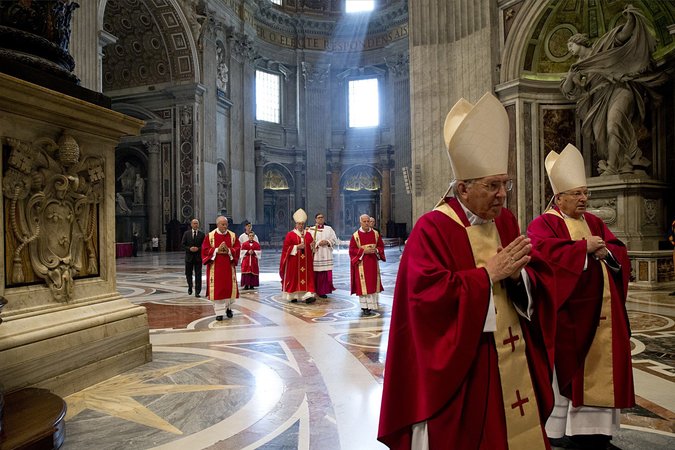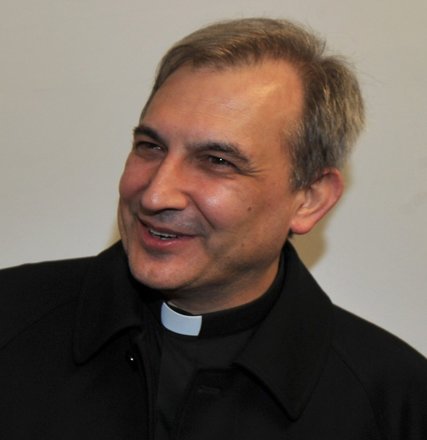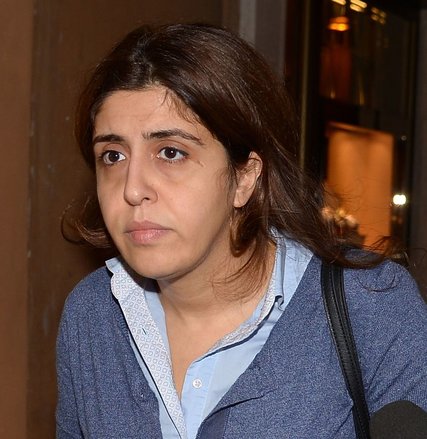Vatican’s Financial Troubles Run Deep, According to New Book
By Gaia Pianigiani
Pope John Paul I, who died in 1978, still holds more than 110,000 euros, or about $120,000, in a Vatican bank account. The Vatican pension fund is running an ˆ800-million deficit. The Vatican’s real estate holdings total ˆ2.7 billion, seven times more than what is listed on its balance sheets. And the Vatican’s governing body had agreed to push Philip Morris cigarettes, for a fee. If they are to be believed, those are some of the revelations set to be published in a new book by Gianluigi Nuzzi, “Merchants in the Temple.” The sources of the claims are not revealed in the book, an advance copy of which was provided by the publisher to The New York Times, and the claims are impossible to verify. But the Vatican has apparently taken the leaks of internal documents seriously enough to arrest two people who had worked on a special commission set up by Pope Francis to overhaul the Roman Catholic Church’s deeply troubled financial management. The arrests over the weekend came just days before the publication on Thursday of Mr. Nuzzi’s book and that of another book, “Avarice,” by an Italian reporter, Emiliano Fittipaldi, who also claims to reveal widespread misuse of Vatican finances.
Mr. Nuzzi wrote an expose in 2012 that spawned the so-called VatiLeaks scandal, which helped precipitate the surprising resignation of Francis’ predecessor, Benedict XVI, and led to the arrest of his butler for stealing papal documents. Mr. Nuzzi has now written a book describing a nest of greed, cronyism and mismanagement at the Vatican and its administrative body, called the Curia, “that couldn’t be farther from Francis’ words,” as he described it in an interview Monday. Perhaps more important, both he and Mr. Fittipaldi claim to show the forces arrayed against Francis as he tries to both liberalize aspects of the church and overhaul what is depicted as a financial morass whose vested interests inside the Vatican have resisted previous attempts at housecleaning. In an advance copy of “Merchants in the Temple,” Mr. Nuzzi cites confidential documents, minutes of meetings and recorded conversations between the pope and bishops, cardinals and advisers in which Francis, four months into his papacy, rebukes them for their financial mismanagement. “There is a complete absence of transparency in the bookkeeping both of the Holy See and the Governorate,” five international auditors wrote to Francis in June 2013, according to Mr. Nuzzi’s book, adding that they suspected a “serious structural deficit” for the Vatican. Among the troubles, Mr. Nuzzi reports large losses on merchandising sold in Vatican shops and rental revenues, as well as “out of control” costs. He also describes rentals of Vatican apartments and other properties at extremely favorable rates to cardinals and functionaries, including a 1,044-square-foot apartment rented to an unnamed Vatican employee near St. Peter’s Basilica for ˆ20.67 a year. According to the commission, the Vatican’s real estate holdings, which Mr. Nuzzi says include properties in France, Britain and Switzerland worth ˆ591 million, could bring in more than triple what they now generate.
The book also recounts hugely expensive maintenance works, at inflated prices, and claims that the Holy See’s Governorate was in negotiations to promote Philip Morris cigarettes for a fee, while some cardinals receive a discount on up to 200 packs of cigarettes a month. Mr. Nuzzi paints a picture of a constant battle between the old guard, sworn to secrecy and maintaining the status quo, and the new guard — mostly represented by the commission set up by Francis soon after he was elected in 2013 to scrutinize the Vatican’s financial holdings and economic structures. Those arrested this week, Msgr. Lucio Angel Vallejo Balda and Francesca Chaouqui — who has already been released and spoke to several national dailies, denying any connection to the leaks — were members of the commission, which was dissolved after completing its mandate last year. The Vatican called the books a “fruit of a grave betrayal of the trust given by the pope, and, as far as the authors go, of an operation to take advantage of a gravely illicit act of handing over confidential documentation.” It also added that “publications of this nature do not help in any way to establish clarity and truth, but rather generate confusion and partial and tendentious conclusions.” Even so, Vatican experts say they expect the impact of the latest round of leaks to be less powerful than that of the “VatiLeaks” scandal. “This is a limited scandal compared to VatiLeaks,” Paolo Rodari, a Vatican expert with the Italian newspaper La Repubblica, said. “As far as we know now, the documents came out from one commission, not from the pope’s own drawer like in VatiLeaks. It’s simply not as grave.” Carlo Marroni, a Vatican analyst with Italy’s financial daily Il Sole 24 Ore, agreed. “It’s certainly a less serious scandal, also because many of the people involved no longer hold those power positions,” he said in a separate interview. “But its intent is stronger,” he said. “It hits a strong pope, much beloved outside, less so inside the Vatican.”
|
.
Any original material on these pages is copyright © BishopAccountability.org 2004. Reproduce freely with attribution.


